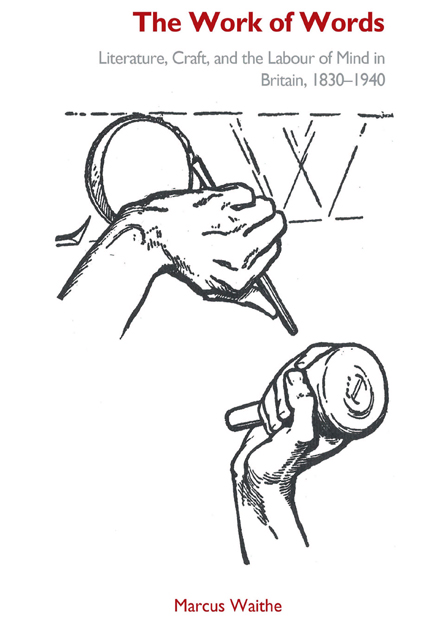3 - Barrett Browning’s Poetic Vocation
Published online by Cambridge University Press: 13 April 2023
Summary
Though not alone among political liberals in celebrating Carlyle, Elizabeth Barrett Browning seems an unlikely admirer of his labour theory. He assumes a masculine identity, after all, and a performance based in strength and able-bodiedness. By contrast, her most productive period coincided with the years she spent in confinement as ‘a confirmed invalid’. Undeterred, Barrett Browning confesses herself ‘an adorer of Carlyle’, even keeping an image of him in her bedchamber. Writing to Robert Browning early in their courtship, she calls him ‘the great teacher of the age’. Perhaps she sensed an opportunity to please by praising his friend; but the affectionate bias runs first and foremost in the other direction. As Rosemary Ashton observes, it was not her lover’s esteem, but Carlyle’s modest praise of Browning’s poetry that ‘predisposed her to like and admire him’. Indeed she had already committed herself in critical prose, having anonymously co-written a laudatory essay on ‘Thomas Carlyle’ for R. H. Horne’s compendium A New Spirit of the Age (1844).
Carlyle’s insistent allusion to the ‘man’ of letters understandably distracts critics from his influence on a poet better known for lamenting a dearth of literary ‘grandmothers’. But the clues are not entirely hidden. Barbara Dennis observes that ‘Elizabeth admired the “strong man” in politics’, while Angela Leighton notes her related attraction to father figures. Several recent studies have begun to explore and clarify the connection with Carlyle more directly. Beverly Taylor assesses Barrett Browning’s engagement with ‘the hero as poet’, while Marjorie Stone sees the figure of Romney in Aurora Leigh (1856) as a kind of distillation of the Carlylean emphasis on ‘labour and action’, a reading that assigns Aurora the utopian side of his prophetic creed, and posits a ‘subversion’ of his ‘authoritative stance’. This chapter extends recent treatment of Carlylean legacies, but does so less in relation to models of heroism than in addressing the material and workaday aspects of Barrett Browning’s proposition that poets should be ‘workers’. Equally, it broadens attention beyond the field of Aurora Leigh – where Carlylean influence interacts complexly with other, not always consistent, strands such as Romney’s Fourieurist socialism – to include an earlier generic field. This reveals Carlyle’s literary Gospel of Work as an effect negotiated in the messy ‘real time’ of daily epistolary labour.
- Type
- Chapter
- Information
- The Work of WordsLiterature, Craft, and the Labour of Mind in Britain, 1830-1940, pp. 63 - 82Publisher: Edinburgh University PressPrint publication year: 2023



